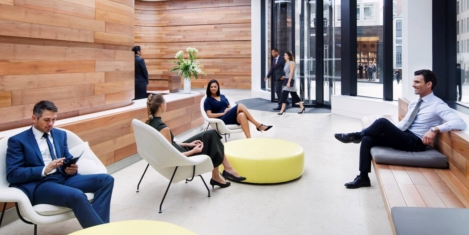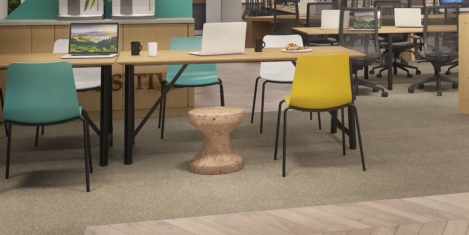To provide the best experiences, we use technologies like cookies to store and/or access device information. Consenting to these technologies will allow us to process data such as browsing behaviour or unique IDs on this site. Not consenting or withdrawing consent, may adversely affect certain features and functions.
The technical storage or access is strictly necessary for the legitimate purpose of enabling the use of a specific service explicitly requested by the subscriber or user, or for the sole purpose of carrying out the transmission of a communication over an electronic communications network.
The technical storage or access is necessary for the legitimate purpose of storing preferences that are not requested by the subscriber or user.
The technical storage or access that is used exclusively for statistical purposes.
The technical storage or access that is used exclusively for anonymous statistical purposes. Without a subpoena, voluntary compliance on the part of your Internet Service Provider, or additional records from a third party, information stored or retrieved for this purpose alone cannot usually be used to identify you.
The technical storage or access is required to create user profiles to send advertising, or to track the user on a website or across several websites for similar marketing purposes.
 Legislation giving employees the right to request flexible working has failed to increase take-up, new research from the University of Manchester shows. The research, presented at the British Sociological Association conference in Belfast last week, has found that there has been no significant overall increase in the number of employees working flexibly since the legislation came into effect in 2014.
Legislation giving employees the right to request flexible working has failed to increase take-up, new research from the University of Manchester shows. The research, presented at the British Sociological Association conference in Belfast last week, has found that there has been no significant overall increase in the number of employees working flexibly since the legislation came into effect in 2014.








 Recent ONS figures showing a rising employment rate could be inflated by the growth of zero-hour contracts within the gig economy, as the number of UK workers on zero hour contracts having more than tripled since 2012. This is propping up overall employment levels by accounting for almost a quarter of overall employment growth, new data by Adzuna has suggested. With the employment rate currently at a record high of 75.7 percent according to the ONS, Adzuna’s data compares recent growth in the number of people in work overall to the increasing number of zero hour contracts, to ascertain how much these contracts have contributed to the growth.
Recent ONS figures showing a rising employment rate could be inflated by the growth of zero-hour contracts within the gig economy, as the number of UK workers on zero hour contracts having more than tripled since 2012. This is propping up overall employment levels by accounting for almost a quarter of overall employment growth, new data by Adzuna has suggested. With the employment rate currently at a record high of 75.7 percent according to the ONS, Adzuna’s data compares recent growth in the number of people in work overall to the increasing number of zero hour contracts, to ascertain how much these contracts have contributed to the growth.












 Being made to feel you’re making a positive contribution to your organisation is an important motivator, but a new study suggests over half of employees believe they would be more productive if they knew how their work fitted into overall company objectives. According to the research from Asana this lack of transparency means a third of UK employees believe their business suffers from a lack of direction, with employees complaining that they do not know what their company stands for and are completely unclear of the company’s long term and short-term goals. This unsurprisingly is having a direct impact on employee motivation, with and framed within the context of the
Being made to feel you’re making a positive contribution to your organisation is an important motivator, but a new study suggests over half of employees believe they would be more productive if they knew how their work fitted into overall company objectives. According to the research from Asana this lack of transparency means a third of UK employees believe their business suffers from a lack of direction, with employees complaining that they do not know what their company stands for and are completely unclear of the company’s long term and short-term goals. This unsurprisingly is having a direct impact on employee motivation, with and framed within the context of the 









September 14, 2018
All those workplace trends lists that you see? We’ve been there before 0
by Mark Eltringham • Comment, Facilities management, Furniture, Workplace design
(more…)